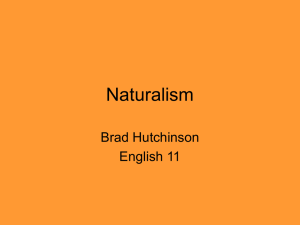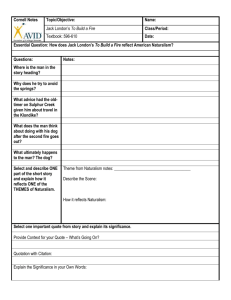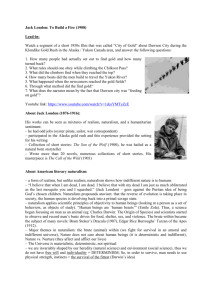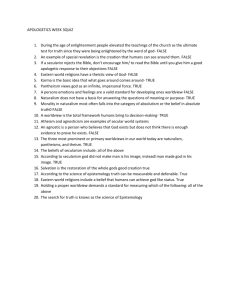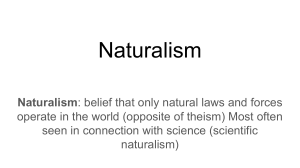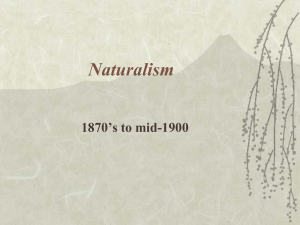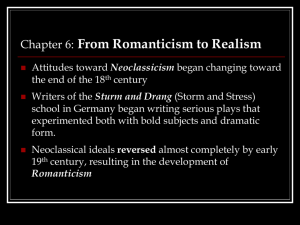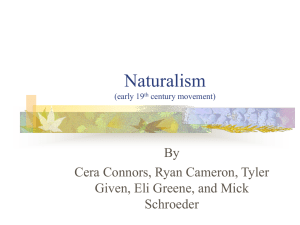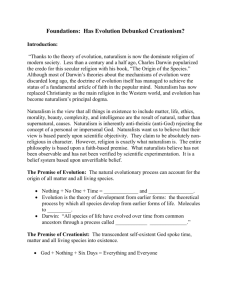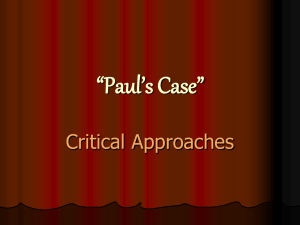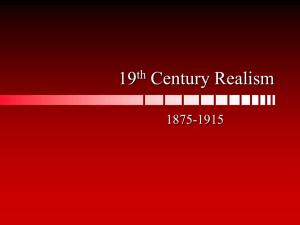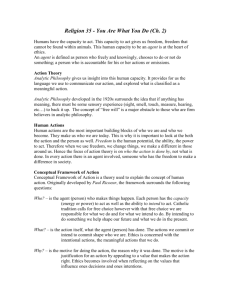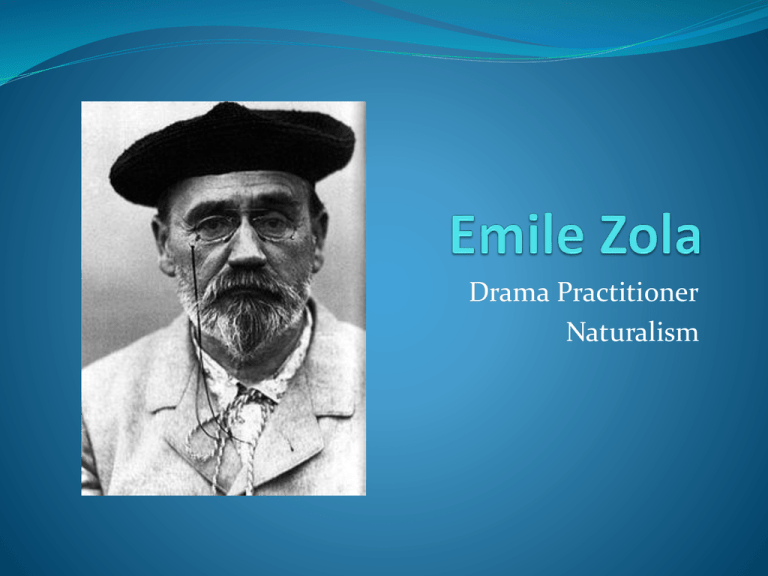
Drama Practitioner
Naturalism
Time Period
Lived in 1840-1902
Age of Enlightenment in the 18th
century
• Events- Napoleonic Wars ends
1815, Eiffel Tower Constructed
1888 Industrial Revolution 18151860(Growth in France) FrancoPrussian War of 1870/1871
• The Dreyfus Affair
Romantic era-
Short Biography
Born in Paris in 1840
His Mother wanted him to do law but he failed his Exam.
Before his breakthrough as a writer he worked as a political
Journalist. He did not hide his dislike for Napoleon III for
numerous reasons.
He wrote his first major novel Therese Raguin in 1867
His main output was the collection of novels Les RougonMacquart which tells the story of a family through out the
generations.
“ I don't want to describe the contemporary society, but a single
family, showing how the race is modified by the environment.”
He Died of carbon monoxide poisoning when he was 62 1902
Influences
Influenced by: Romantisism, Charles Darwin Claude
Bernard(French Psychologist) Hippolyte Taine ( French
Historian, critic and influencer of sociological
positivism.)
Influenced: Naturalism George Orwell Tom wolfie
Jen ten Binks (Brought Zola’s works to the
Netherlands)
Style
Les Rougon-Macquart - 20 books
-is the story of a family throughout
the generations during fictional
Second French Empire. It shows the
respectable and despicable. A great
example of French Naturalism
My work, mine, will be something else
entirely. The scope will be narrower. I don't
want to describe the contemporary society, but
a single family, showing how the race is
modified by the environment. (...) My big task
is to be strictly naturalist, strictly
physiologist."
Naturalism
"I wish to explain how a family, a small group of human beings,
conducts itself in a given social system after blossoming forth and
giving birth to ten or twenty members, who, though they may appear, at
the first glance, profoundly dissimilar one from the other, are, as
analysis demonstrates, most closely linked together from the point of
view of affinity. Heredity, like gravity, has its laws.
By resolving the duplex question of temperament and environment, I
shall endeavour to discover and follow the thread of connection which
leads mathematically from one man to another. And when I have
possession of every thread, and hold a complete social group in my
hands, I shall show this group at work, participating in an historical
period; I shall depict it in action, with all its varied energies, and I shall
analyse both the will power of each member, and the general tendency of
the whole."--Emile Zola, Paris, July 1, 1871
Naturalism
Shows the dark Harshness
of life.
Themes such as Death, Sex,
Violence Prejudice,
Corruption and poverty.
In theatre it refers to
creating the Idea of a real
life and no un-natural events
are portrayed.
Acting is as realistic as
possible. Seams natural.
Aims to look as if the
audience is looking down on
a scene as it happens.
Technical components
Light ~ Natural (Light bulbs were
invented in 1879 so They may have had
them in the end of his career.)
Sound ~ Projection of voice. Theatres
sometimes made to accommodate with
sonorous walls and shape.
Costume ~ Depends on the wealth of the
theatre but otherwise to fit the character
e.g. commoner clothing for a poor
character.
Set ~ Plain with normal wooden
furniture. Nothing un realistic.
Proscenium stage ~ A Proscenium
theatre is when a picture frame is place
around the stage. No audience around
the stage. Arch ways across the top.
Directing
The purpose of Naturalism in theatre is to convey a
situation that would give them impression to the
audience that they were looking at a slice of life.

